Archive for the ‘Alison Bielski’ Category
Entry 31 — Old Blog Entries 663 through 670
Wednesday, December 2nd, 2009
In #663, I presented my Odysseus Suite–but the reproduction is too crude for me to re-post it here. My next entry featured this, by Endwar:
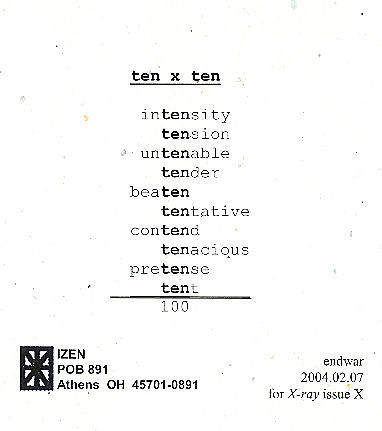 As I announced when I first posted this, I am hoping to publish an anthology of mathematical poems, like this one, so if you have one or know of one, send me a copy of it, or tell me about it.
As I announced when I first posted this, I am hoping to publish an anthology of mathematical poems, like this one, so if you have one or know of one, send me a copy of it, or tell me about it.
#665 had this by Marton Koppany, which I have to post here because it was dedicated to ME:
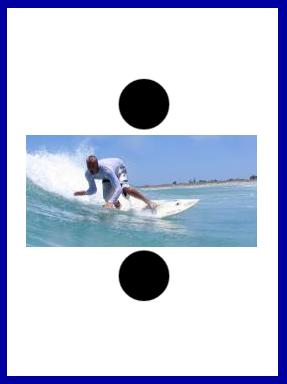
Hey, it’s mathematical, too. The next entry, whose number I fear to state, concerned this:

This is from Typewriter Poems, an anthology published by Something Else Press and Second Aeon back in 1972. It’s by Alison Bielski, An English woman born in 1925 whose work I’m unfamiliar with. I find this specimen a charmer . . . but am not sure what to make of it. Three lines, as in the classic haiku. The middle one is some sort of filter. Is “n” the “n” in so much mathematics? If so, what’s the poem saying? And where does the night and stars Hard for me not to assume come in? Pure mathematics below, a sort of practical mathematics above? That idea would work better for me if the n’s were in the lower group rather than in the other. Rather reluctantly, I have to conclude the poem is just a texteme design. I hope someone more clever sets me right, though. (I’m pretty sure I’ve seen later visio-textual works using the same filter idea–or whatever the the combination of +’s. =’s and n’s is, but can’t remember any details.)
It was back to my lifelong search for a word meaning “partaker of artwork” in #667–but I now believe “aesthimbiber,” which I thought of in a post earlier than #667, I believe, but dropped, may be the winner of my search.
Next entry topic was about what visual poets might do to capture a bigger audience. I said nothing worth reposting on a topic going nowhere because visual poets, in general, are downright inimical to doing anything as base as trying to increase their audience. One suggestion I had was to post canonical poems along with visual poems inspired by them, which I mention because in my next entry, I did just that, posting a Wordsworth sonnet and a visual poem I did based on and quoting part of it–and don’t re-post here because of space limitations. I wrote about the two in the final entry in this set of ten old blog entries.

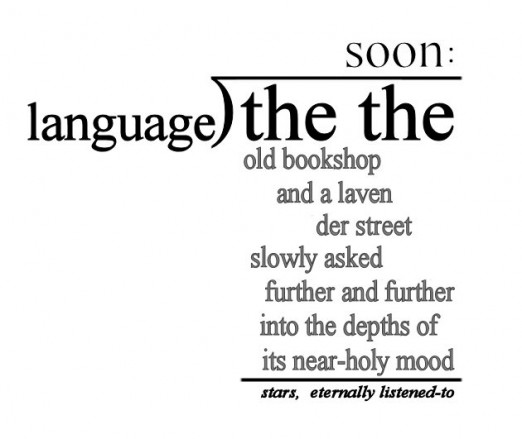
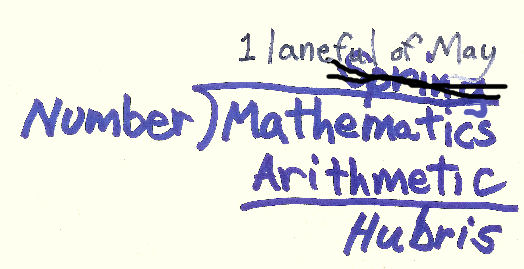
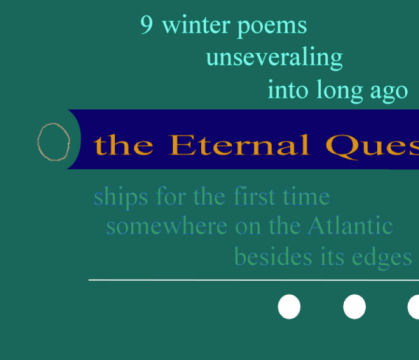
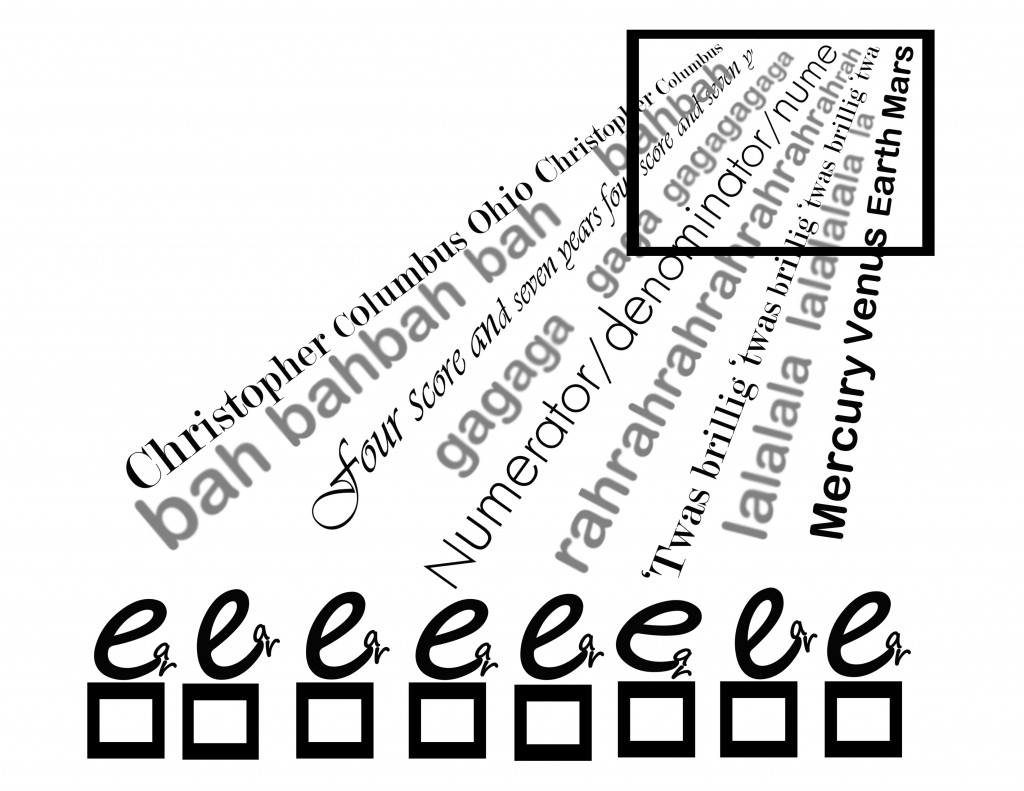
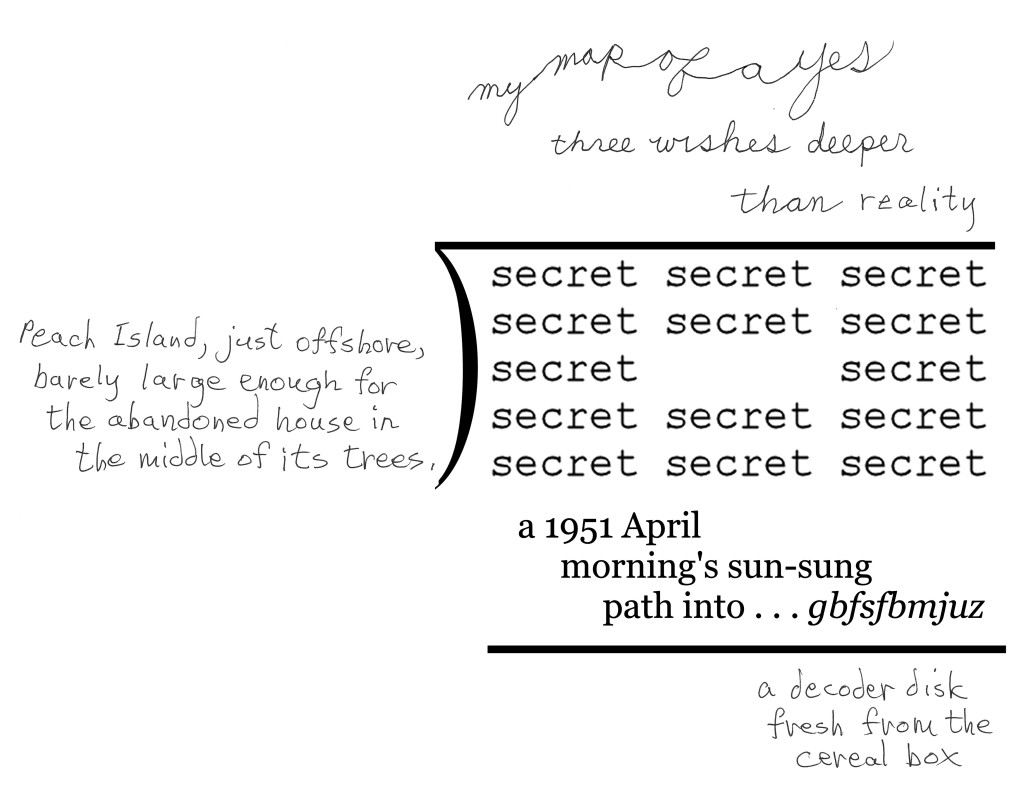
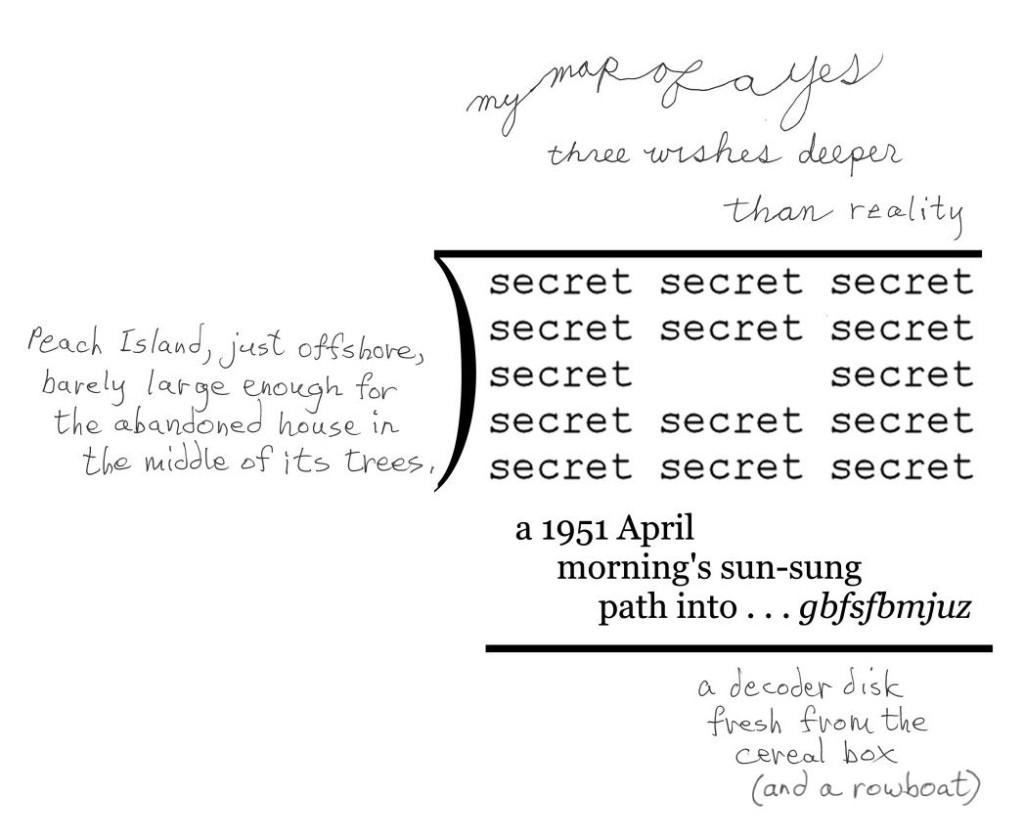







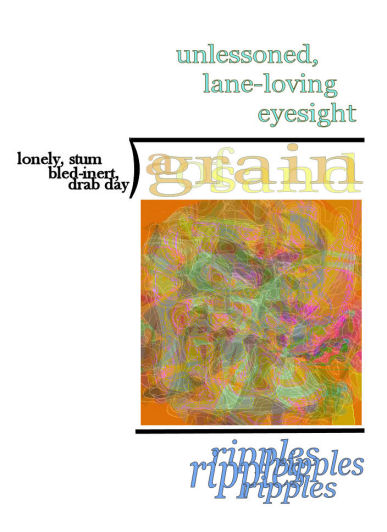
I really like this one; it strikes me as very E.E. Cummings-inspired, and I love that guy. I think the use of gray is a good idea because it gives the “remainder” more punch at the end. I’m a bit confused on reading your description in which you keep talking about Basho’s pond, which I don’t see in evidence here … I’m thinking if I had seen an earlier version of this, or I was better versed in the Grummanverse, I would understand that. And finally, you won’t have to struggle between “the” or “a” bookshop’s mood soon, where there’s just one bookshop left. Just had to end that with a little (sad) humor!
Oh, boy, I get to explain! Nothing I love more. Basho comes in because of his famousest poem, which I’ve made versions of and written about a lot, the one that has the “old pond” a frog splashes into. My poem has an “old bookshop” that has a mood with depths a street enters like (I think) the pond’s water with depths the frog enters. But now that you bring it up, I guess the allusion is pretty hermetic.
Glad you like it. I still do now that I’m looking at it again–although it strikes me as pretty weird.